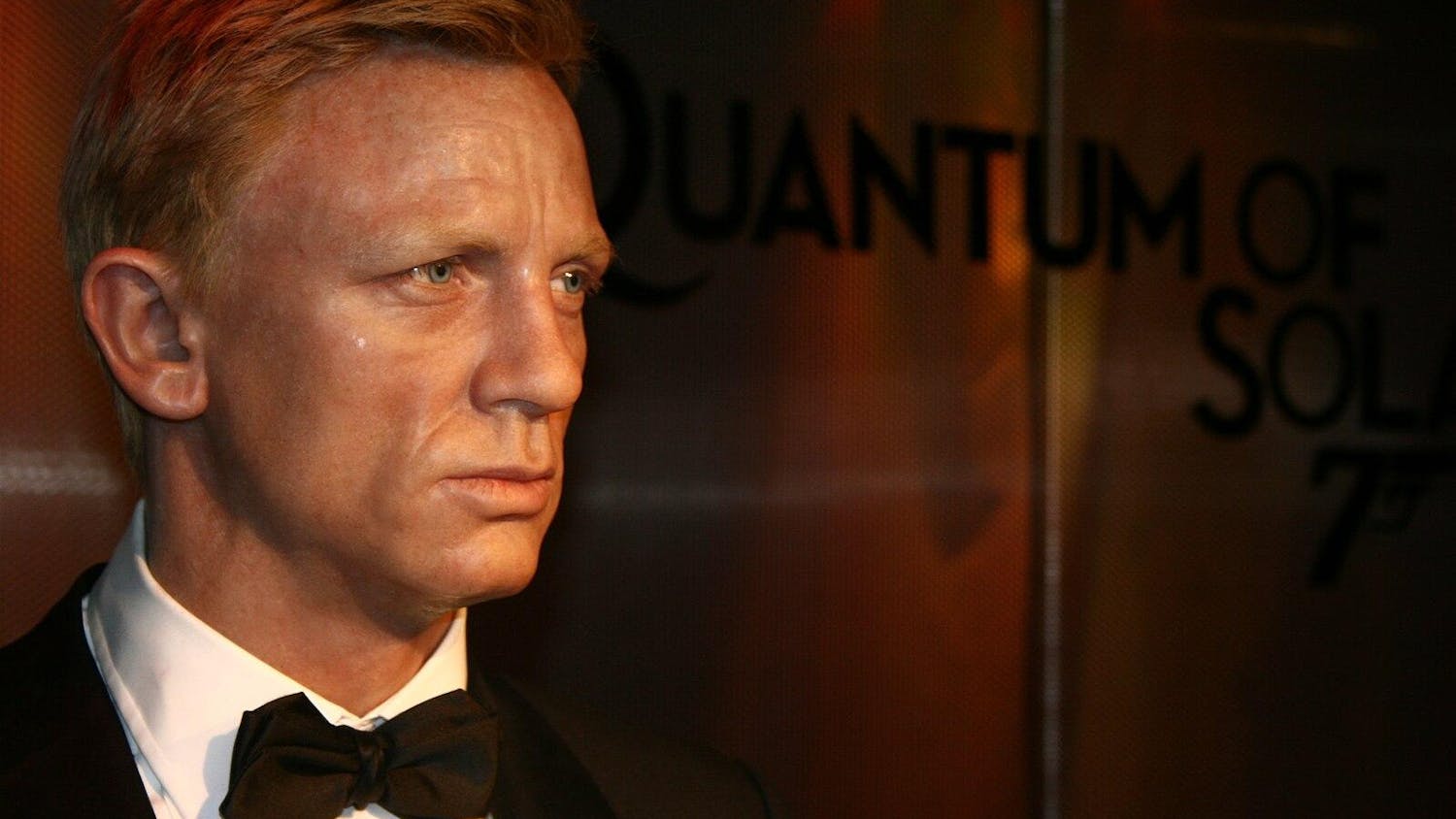A gaggle of students clothed in bright, silky garments huddled together onstage, clasping hands and hopping up and down on bare feet. The energy was palpable. Director Luke Jorgensen seemed swept up in the buzz of excitement, too, as he called out to the cast of Mary Zimmerman's "Arabian Nights," "This is a giant theme party, and you're about to rock the audience's world. They don't even know what they're getting into."
Jorgensen's right: Though the atmospheric set for the Tufts Department of Drama and Dance's performance hints to audience members of an otherworldly experience, there's really no way to know that a few short moments of watching this performance of "Arabian Nights" will transport them from Massachusetts to the Middle East. Romantic glass lanterns and the rich red−and−gold canopy stretching across weathered stone arches may indicate the show's sensuality, but they do not fully indicate the show's lasciviousness and refreshing hilarity.
Though "Arabian Nights" tells many tales, all are framed within the story of Shahryar (freshman Ju−Hyun Matthew Park), a king cuckolded by his first wife. His bitterness inspires him to take a new bride every night, only to execute her in the morning. The story opens when all the eligible women in the land have either died at his hand or fled — all but the daughters of the king's vizier: Scheherezade (senior Eliana Sigel−Epstein) and Dunyazade (senior Julia Izumi).
Shahryar decides to wed Scheherezade, unaware that the young maiden has a plan. Determined to save her life, and the lives of the other girls in the kingdom, Scheherezade uses her gift for storytelling to keep the king in suspense, hoping that her marvelous yarns will eventually melt his hardened heart — and pry the knife from his hand.
The talented actors assume several different roles throughout the play, portraying Scheherezade's sweeping stories in a fittingly hyperbolic fashion. The anecdotes range from serious to uproarious: one narrates the grief a woman experiences when her beloved fails to recognize her ardor and rejects her for another woman; another uses a clarinet and crude, mouth−made sound effects to depict a truly unforgettable fart. ("Shouldn't have eaten those chickpeas," the actors cluck.)
Love, betrayal, orgies, belly dancing, know−it−alls, wedding dances: Clearly, this is good stuff, and the cast is well aware of that fact.
The actors evoke everything they can from the material; Izumi is a laugh riot, not only in the role of Dunyazade, but also as a licentious wife, taking several lovers into her marital bed and feigning innocence (with a hysterically funny "don't look at me" face and mumbled asides). Contrasting with Izumi's crack−up performance, but equally impressive, is Park's touching depiction of a man blinded by his passions and punished by karma.
There is no mistaking that "Arabian Nights" is trying to channel an era long past, but Jorgensen said that the cast intended to put a contemporary spin on this performance. "It evokes what's going on in Egypt right now … We thought about what happens when there is communication," Jorgensen said. "The actors have done a lot of adding to the show. If you looked at the script, you'd see how they've been doing all this stuff creatively."
That present−day political interpretation takes on a heavy meaning when coupled with the idea that these characters' destinies are "written" — "it is written" and similar variations spring up throughout the play, alluding to destiny.
The idea of "writing a destiny" couples with the play's emphasis on communication in this version of "Arabian Nights," questioning our ability — or maybe challenging us — to effect change. The idea is summarized in an exchange that takes place in one of Scheherezade's stories: To the question, "What can destroy empires?" a brilliantly learned girl replies, "Words."
"Arabian Nights" opens tonight in Balch Arena Theater at 8 p.m. and is running at the same time every night through April 16. Tickets are $7 with a Tufts ID at the Aidekman Box Office; on April 14, tickets are $1.





